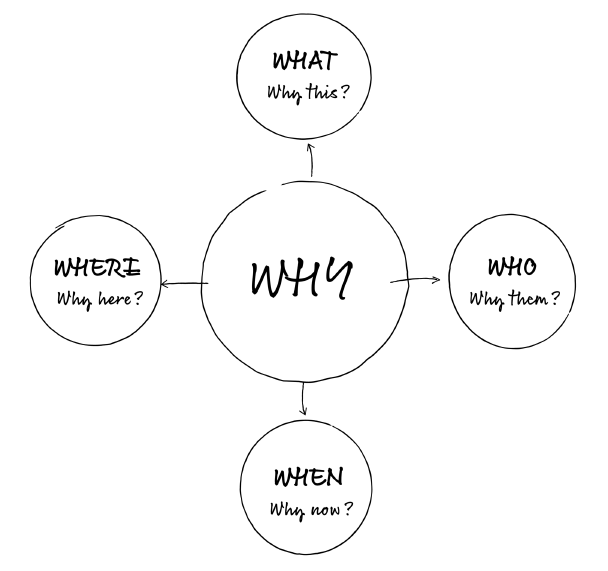Part IIWorking better together
Cooperation is defined as ‘the process of working together for a common purpose or benefit'. I like this definition as it implies that we are all clear about the reason we are doing what we are doing — that is, that we are clear about our why.
Successful cooperation relies on asking yourself a number of questions. Productive cooperation always comes from considering first why, then what, who, when and in some cases where (see figure II).

Figure II: why, what, who, when and where
Considering these questions every time you work with others on a project, call a meeting, delegate work, send an email or even interrupt someone will generate more constructive thinking and more productive interaction.
Simon Sinek, in his book Start with Why, makes the case that ‘why?' is the most important question for any leader who wants to motivate and inspire a team. First clarify, then communicate a clear purpose. It makes sense. We are more likely to buy into a vision, and work hard to achieve it, if we understand why we are doing it.
We are more likely to work productively with others if we uncover the why behind our interactions.
For example, imagine I am sitting at my desk, working on a client proposal, when I see my colleague Claire on her way to a meeting. I remember I need to check with her about some line items in the budget before the budget meeting ...
Get Smart Teams now with the O’Reilly learning platform.
O’Reilly members experience books, live events, courses curated by job role, and more from O’Reilly and nearly 200 top publishers.

